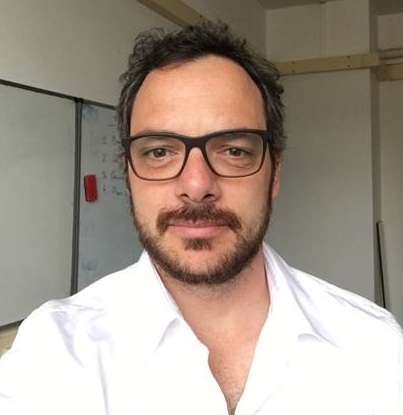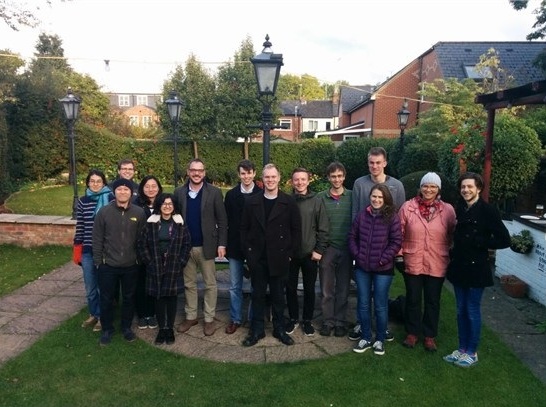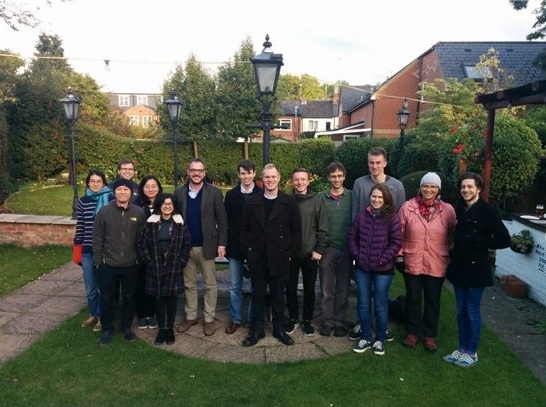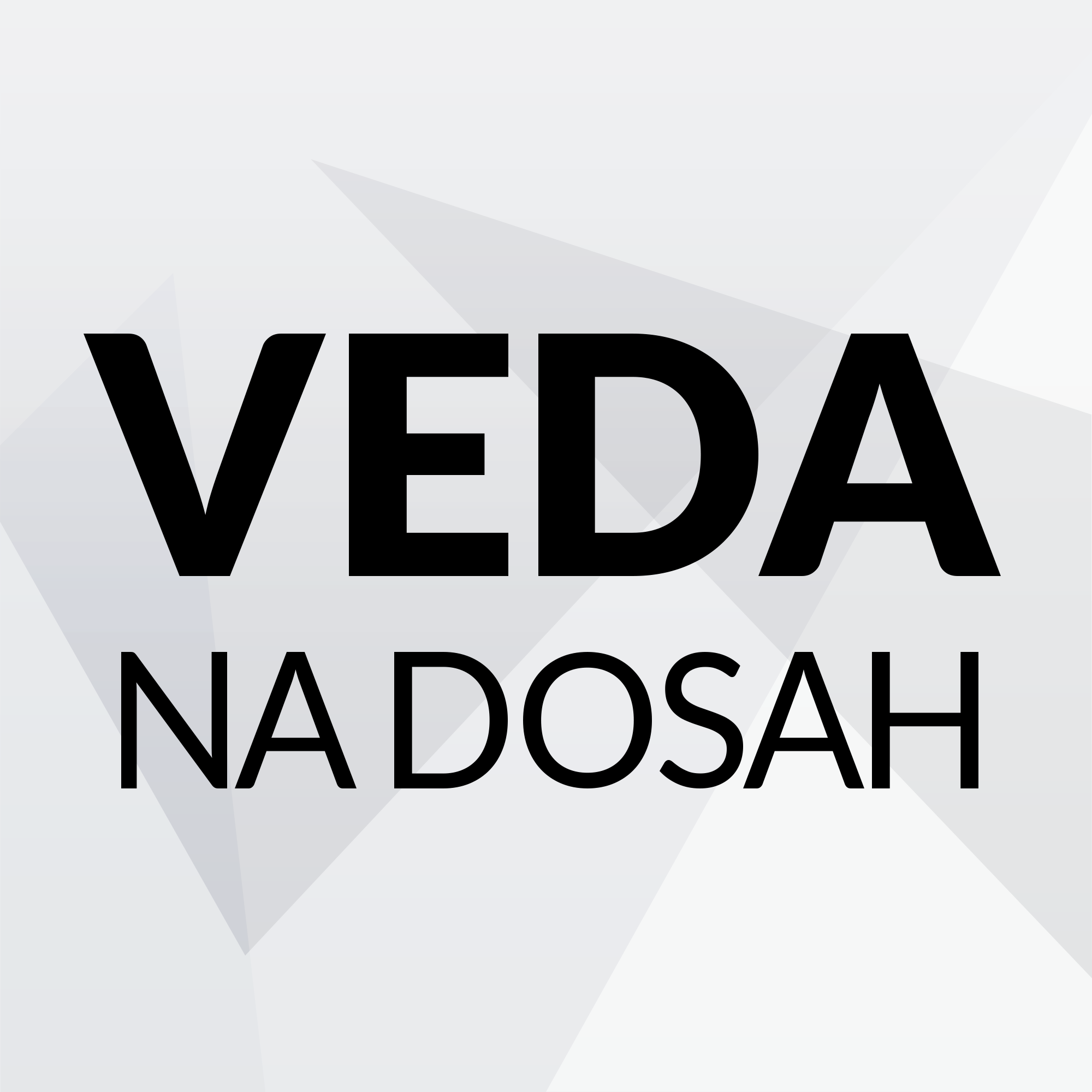
Známe meno vďaka známemu otcovi, no svoju vlastnú cestu uznávaného vedca si buduje sám. Vo svojom odbore – fyzikálnej chémii je skutočne výnimočný. Prinášame vám rozhovor s Philippom Kukurom, profesorom chémie, ktorý pôsobí v rámci Laboratória fyzikálnej a teoretickej chémie Oxfordskej univerzity vo Veľkej Británii. Okrem iných je držiteľom najnovšieho ocenenia EBSA – Young Investigator Award 2017.
Rozhovor sme pripravili v angličtine. Slovenský preklad nájdete pod anglickou verziou.
*********************************************
Originálny rozhovor s Philippom Kukurom v angličtine
Phillip Kukura is working on research into the world’s most sensitive microscopes
Well-known name thanks to father´s well-known name, but his own way of a highly regarded scientist he has been building up by himself. He is really extraordinary in the branch of knowledge of Physical Chemistry he is working at. Rarity is the fact he gained professorship in his age of thirty nine. We run the interview with PHILLIP KUKURA, Professor of Chemistry, who works as a leading light in the Physical and Theoretical Chemistry Laboratory in the University of Oxford in Great Britain. Besides others he is a laureate of the newest honour – Young Investigator Award 2017.
Z. HAJDU: In the very beginning let us to put you a question as the journalists usually ask, but nothing to do, you are the son of the most noticable slovak actor Juraj Kukura. You decided to go different way. You are an exceptional top scientist in physical chemistry and in age of only 39 years old you was graduated as a professor. What was the reason you focused on chemistry and how old was you when you decided for this section, that in your case outgrowed in a top scientific work?
P. KUKURA: This was not really a decision I made, it is much more something that happened. I liked maths and spent a year living in the USA as an exchange student when I was 16, where I was exposed to Chemistry through my host family. I enjoyed it, decided to study it at Unviersity level, then thought why not do a PhD, then thought why not Postdoc and so on. So it was much more doing something that I enjoyed, that allowed me to live in different parts of the world and then I was fortunate enough to be able to continue.
Z. H.: In general there are few information (maybe not correct), that you studied not only in Germany and Great Britain, but also in USA. Will you clarify all your studies?
P. KUKURA: I did my undergraduate work at the University of Oxford, my PhD at the University of California in Berkeley and then a Postdoc at the ETH in Zürich.
Z. H.: How did you get later to Oxford?
P. KUKURA: Well, I got two Oxford twice. Once as an undergraduate, after being offered a place to study there and the second time after my postdoc for my first independent group leader position, which was funded very generously intially through a grant by the Engineering and Physical Sciences Research Council (EPSRC) and the by the European Research Council.
Z. H.: Please, could you tell us in a more popular way, so that people understand, what is your aim in your job you focus on and what is an intention of your next or subsequent research?
P. KUKURA: My current research revolves around developing the world’s most sensitive microscopes and applying that technology to both fundamental and applied questions in the life sciences and health. A simple way to think about it is that we have developed a microscope that cannot only see single molecules, but that can actually weigh them – with light. The reason why this is fascinating is that pretty much every process and function, be it physiological or pathological is usually connected with molecules coming together and space and time. So if you can weight individual molecules accurately, you can determine whether and how they are interacting.
Z. H.: Could you describe your laboratory and your team?
P. KUKURA: My laboratory is in the basement of a modern research building (basement because our measurements are very sensitive) consisting of both a ‚laser‘ lab and a ‚wet‘, i.e where we measure and where we prepare our samples.
My team is naturally the single most important factor of my research. I do not get to do experiments anymore, I just raise money and supervise students and postdocs. And I am incredibly blessed to be working with incredibly bright people from all over the world (currently: Israel, India, Germany, UK, China, Poland, Switzerland).

Z. H.: I supose, that your research has a strong interdisciplinar character. Could you explain that?
P. KUKURA: As I mentioned above – the interdisciplinarity comes naturally. While I am a chemist by training, in fact my research is closer to Physics, but the applications are in biology and medicine. So it is really all over the place.
Z. H.: You travel a lot. What institutions worldwide do you cooperate with?
P. KUKURA: Travelling is part of the job – part of it is to present your work, some of it to make contacts but most important is actually seeing new things and exchanging ideas. I don’t tend to come up with new projects by staring at the ceiling, it almost always happens by talking to people, especially those I do not work with.
I collaborate with people from all over the world, but mostly the US and Germany at the moment.
Z. H.: Last year you lectured to students of Faculty of Natural science in Comenian University. Can you describe an impression you have had from the atmosphere there? What about slovak students? Did you feel any substantial difference between slovak and english students in your subject of teaching / searching? Is it comparable at all?
P. KUKURA: I have a very high regard for the Slovak system, as it strikes me to be very rigorous. It seems clear that there are some quite serious funding issues, but there is pressure all over the world. A comparison of students would be very difficult indeed, not only because most of my students are not english. If there is one thing that I think one may want to approach, then it is the combination of excellence and ambition. And that takes money, which initially would have to come from the government, but would eventually be taken over by external sources, such as the ERC. But one needs to become competitive first.
Z. H.: As a young man with a succesful career you was awarded also in Slovakia. During visiting Comenian University in Bratislava you was awarded directly by Ministry of Education. It was the St. Gorazd award. I mean this award was more of social import than scientific. Which valuations or awards you have received till now is for your career of scientist the most important?
P. KUKURA: That is a difficult question. Awards are wonderful, but they are more a reflection of what you have already achieved, so in many ways what really counts is the appreciation of your work by your peers. In many ways, all the awards were important, but maybe the one I am most proud of is being promoted to Full Professor only 5 years after being appointed lecturer at Oxford.
Z. H.: Will you be so kind and explain as in the very end what does it mean to be awarded by EBSA (Young Investigator Award 2017) and can you outline what was the topic of your lecture there in Edinburgh?
P. KUKURA: The EBSA is the European Association of Biophysical Societies, just like there are chemical, physical, and medical societies. They have an award for Young Investigators (within 12 years of their PhD). Each of the member states gets to nominate one person and then a committee selects from the pool of candidates, so it is quite competitive. The topic of my lecture covered measuring the weight of single molecules with light!
Z. H.: Thank you very much for the interview and let our institution to congratulate you on your new considerable result and to wish you lots another achievements!
*********************************************
preklad (redakcia)
Z. HAJDU: Na úvod dovoľte otázku, ktorú zvyknú klásť novinári. Ste synom významného slovenského herca Juraja Kukuru. Rozhodli ste sa ale pôsobiť v inej oblasti. Ste špičkovým vedcom vo fyzikálnej chémii a vo veku 39 rokov ste získali titul profesora. Prečo ste sa zamerali na chémiu a koľko rokov ste mali, keď ste sa rozhodli práve pre túto vednú oblasť.
P. KUKURA: Neurobil som priame rozhodnutie, skôr išlo o niečo, čo sa jednoducho udialo. Mal som rád matematiku a keď som mal 16 rokov, strávil som rok v USA ako výmenný študent, kde som prostredníctvom svojej hostiteľskej rodiny prišiel do kontaktu s chémiou. Veľmi sa mi to páčilo a rozhodol som sa študovať ju na univerzitnej úrovni. Potom som si pomyslel, prečo si neurobiť PhD., potom prečo nie Postdoc., a tak ďalej. Takže som mal veľa možností robiť to, čo ma baví a mal som šťastie, že som mohol zakaždým pokračovať ďalej. Navyše mi to umožnilo žiť v rôznych častiach sveta.
Z. H.: Vo všeobecnosti existuje málo informácií (a možno nie sú správne), že ste študovali nielen v Nemecku a vo Veľkej Británii, ale aj v USA. Mohli by ste objasniť svoje štúdiá?
P. KUKURA: Vysokoškolský program som absolvoval na Oxfordskej univerzite, titul PhD. som získal na Univerzite v Kalifornii v Berkeley a potom postdoktorandský na ETH v Zürichu.
Z. H.: Ako ste sa neskôr dostali na Oxfordskú univerzitu?
P. KUKURA: V podstate som sa na Oxford dostal dvakrát. Raz ako vysokoškolský študent a druhýkrát po získaní titulu Postdoc. Dostal som sa na prvú pozíciu vedúceho nezávislej skupiny, ktorej práca bola financovaná veľmi štedro, a to hlavne prostredníctvom grantu Rady pre výskum strojárskych a fyzikálnych vied (EPSRC) a Európskej rady pre výskum.
Z. H.: Mohli by ste nám vysvetliť, skôr laickým spôsobom, čo je cieľom vašej práce, alebo aký je zámer vášho ďalšieho výskumu v súčasnosti?
P. KUKURA: Súčasný výskum sa týka vývoja najcitlivejších mikroskopov na svete a aplikácie tejto technológie na základné a aplikované otázky v oblasti vedy o živote a zdraví. Jednoduchý spôsob, ako o tom rozmýšľať je, že sme vyvinuli mikroskop, ktorý nielenže môže vidieť jednotlivé molekuly, ale skutočne ich môže vážiť – svetlom. Dôvodom, prečo je to fascinujúce, je skutočnosť, že skoro každý proces a funkcia, či už fyziologická alebo patologická, je zvyčajne spojená s molekulami, ktoré spolupôsobia, priestorom a časom. Ak teda môžete jednotlivé molekuly vážiť presne, môžete určiť, či a ako prechádzajú interakciou.
Z. H.: Môžete popísať vaše laboratórium a váš pracovný tím?
P. KUKURA: Moje laboratórium sa nachádza v suteréne modernej výskumnej budovy (je to vlastne pivnica, pretože naše merania sú veľmi citlivé). Pozostáva z dvoch oddelení, „laserového“ laboratória a z „mokrého“ laboratória, teda kde meriame a kde pripravujeme naše vzorky.
Môj tím je prirodzene najdôležitejším faktorom môjho výskumu. Osobne už v súčasnosti nerobím experimenty, len získavam peniaze a dohliadam na študentov a postdoktorandov. Nesmierne si vážim, že spolupracujem s naozaj múdrymi ľuďmi z celého sveta (momentálne z Izraela, Indie, Nemecka, Veľká Británie, Číny, Poľska, Švajčiarska).

Z. H.: Predpokladám, že váš výskum má silný interdisciplinárny charakter. Môžete to vysvetliť?
P. KUKURA: Ako som už spomínal, interdisciplinárny charakter prišiel prirodzene. Zatiaľ čo ja som sa stal chemikom, v skutočnosti je môj výskum bližšie k fyzike, ale aplikácie siahajú do biológie a medicíny. Takže ten presah je naozaj všade.
Z. H.: Cestujete veľa. S ktorými inštitúciami celosvetovo spolupracujete?
P. KUKURA: Cestovanie je súčasťou mojej práce. Všade musím jednak prácu prezentovať, potom vytvárať nové kontakty, ale to najdôležitejšie je vidieť nové veci a vymieňať si nápady. Nemám tendenciu prichádzať s novými projektmi tak, že „pozerám na strop“. Naopak, takmer vždy sa niečo udeje práve vo chvíli, keď hovorím s ľuďmi, najmä s tými, s ktorými som ešte neprišiel do pracovného kontaktu.
Takže spolupracujem s ľuďmi z celého sveta, momentálne väčšinou z USA a z Nemecka.
Z. H.: V minulom roku ste prednášali študentom Prírodovedeckej fakulty Univerzity Komenského v Bratislave. Môžete opísať dojem, ktorý ste mali z atmosféry? A čo slovenskí študenti? Cítili ste podstatný rozdiel medzi slovenskými a anglickými študentmi vo vašej oblasti výskumu? Je to vôbec porovnateľné?
P. KUKURA: Veľmi si vážim slovenský systém, pretože sa mi zdá byť veľmi prísny. Existujú zrejme niektoré vážne problémy financovania, ale podobný tlak je po celom svete. Porovnanie študentov by bolo skutočne veľmi ťažké, a to nielen preto, že väčšina mojich študentov nie je anglicky hovoriacich. Ale ak by som mal povedať jednu vec, ku ktorej by sa mal chcieť priblížiť každý vedec, tak je to kombinácia dokonalosti a ambície. A to prináša peniaze, ktoré by pôvodne mali pochádzať od vlády. Ale eventuálne by mohli pochádzať aj z externých zdrojov, ako napríklad ERC. Prosto, aj vedec musí byť predovšetkým konkurencieschopný.
Z. H.: Počas návštevy Univerzity Komenského v Bratislave ste získali ocenenie priamo od Ministerstva školstva. Ide o cenu Sv. Gorazda. Myslím, že toto ocenenie malo skôr spoločenský význam než vedecký. Ktoré ocenenia alebo vyznamenania, ktoré ste získali doteraz, sú najdôležitejšie pre vašu kariéru vedca?
P. KUKURA: To je ťažká otázka. Ocenenia sú skvelé, ale sú skôr odrazom toho, čo ste dosiahli, takže v mnohých ohľadoch to, čo skutočne rozhoduje, je zhodnotenie vašej práce vašimi rovesníkmi. V mnohých ohľadoch boli všetky ocenenia dôležité, ale asi to, na čo som najviac hrdý, je povýšenie na profesora iba po piatich rokoch praxe lektora v Oxforde.
Z. H.: Môžete nám na záver objasniť, čo to znamená získať cenu EBSA (Youn Investigator Award 2017 – Cena mladého investigátora 2017) a môžete načrtnúť, akú tému mala vaša prednáška pri príležitosti tohto ocenenia v Edinburghu?
P. KUKURA: EBSA je Európske združenie biofyzikálnych spoločností, rovnako ako sú chemické, fyzikálne a lekárske spoločnosti. Oceňujú mladých investigátorov (do 12 rokov od získania titulu PhD.). Každý z členských štátov nominuje jednu osobu a potom výbor spomínaného združenia vyberie z kandidátskej skupiny, takže je to riadna súťaž. Témou mojej prednášky bolo meranie hmotnosti jednotlivých molekúl so svetlom.
Z. H.: Veľmi pekne Vám ďakujeme za rozhovor a v mene redakcie Vám gratulujeme k oceneniu a prajeme Vám ešte veľa ďalších úspechov.
Zhovárala sa/Interviewed by: Zuzana Hajdu, NCP VaT pri CVTI SR
Foto: Philipp Kukura; Kukura Lab
Preklad/Translated by: Slávka Habrmanová, NCP VaT pri CVTI SR
Uverejnila: VČ


